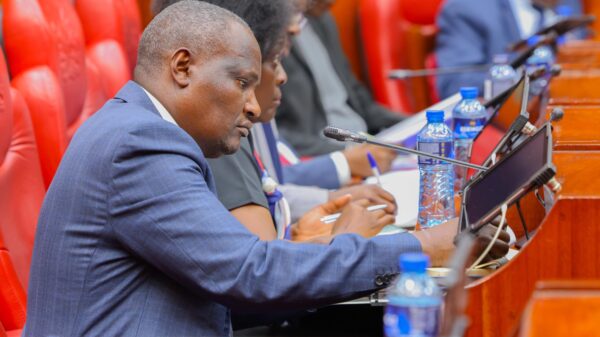NAIROBI, Kenya, Oct 1 – The US federal government has shut down after Republican and Democratic lawmakers failed to resolve a budget standoff.
The impasse affects the of funding government operations through October and beyond and is poised to cause widespread disruption for Americans in areas ranging from air travel to zoo visits.
The political gridlock is also expected to put 40% of the federal workforce – about 800,000 people – on unpaid leave.
Here’s how its impact will be felt across the country.
Your next flight
A federal shutdown will hit flyers in a variety of ways, potentially leading to long security queues, and delays caused by unpaid air traffic controllers choosing to stay home rather than work for free.
Air traffic control and Transportation Safety Administration (TSA) workers are considered “essential”, so they will continue to go to work in the event of a shutdown.
But they will not be paid until the shutdown ends. During the last shutdown in 2018-2019, these workers increasingly began to call in sick, leading to airport delays.
Impact will also be felt by Americans planning to travel abroad, with US passport agencies warning that it could take longer than usual to process travel documents.
No work – or pay – for federal workers
Federal employees are expected to be hardest hit, as they will not receive any pay cheque while the shutdown continues.
Some workers may choose to take second jobs, as they have during previous shutdowns. Employees that are not deemed to be essential will be forced to stay home. In the past, these workers have then been paid retrospectively.
Several agencies, like the Centers for Disease Control and Prevention and the National Institutes of Health are likely to furlough many workers, affecting ongoing research and experiments already in progress.
President Donald Trump, who has slashed government spending and cut federal jobs since taking office, warned repeatedly that a shutdown could accelerate further layoffs and allow him to cut services and programmes he says are important to Democrats.
Contractors, who work for federal agencies but are not directly employed by the government, will miss out on work, too. These workers historically have not received any backpay, according to the Committee for a Responsible Federal Budget.
National Parks with no staff
Federal lands, including National Parks and National Forests, have been closed off to visitors during past shutdowns, since the rangers and other employees were asked to stay at home.
During the last shutdown, the Trump administration made the decision to leave parks open, with few to no federal workers there to staff them.
According to park advocates, the decision led to vandalism in parks, as visitors drove through protected landscapes, looted historical sites, and rampantly littered.
A group of more than 40 former park superintendents have appealed to the White House to completely close parks down in the event of a shutdown.
“We don’t leave museums open without curators, or airports without air traffic controllers – and we should not leave our national parks open without National Park Service workers,” said Emily Thompson of the Coalition to Protect America’s National Parks.
Visit to the zoo
Washington DC’s famous Smithsonian Institution museums will stay open until at least next Monday, 6 October.
On the Smithsonian website, the organisation said it had money available from years prior to help it stay open.
Animals at the National Zoo “will continue to be fed and cared for,” according to the Smithsonian, which runs the zoo.
But the popular webcams will be shut off, as they have been deemed non-essential by zoo staff.
The suspension of the broadcasts will disrupt viewers peek at the zoo’s pandas, lions, elephants and naked mole rats.
Health care for the elderly and poor
Medicare and Medicaid, social health programmes for the elderly and poor, will continue, but staffing shortages could lead to some interruptions for certain services.
Emergency disaster relief is also expected to be largely unaffected, however other work done by disaster agencies will be affected.
The National Flood Insurance Program will be closed, delaying some mortgages on properties that require policies from the government-run programme.
But if the shutdown drags out, it is possible that the Federal Emergency Management Administration (Fema) could run out of money for its Disaster Relief Fund.
Food assistance programmes will also be impacted, with the Supplemental Nutrition Program for Women, Infants, and Children (WIC) expected to rapidly run out of funds.
The Supplemental Nutrition Assistance Program (formerly known as food stamps) is expected to continue for longer, but is also at risk of running out of funding.
By BBC



































